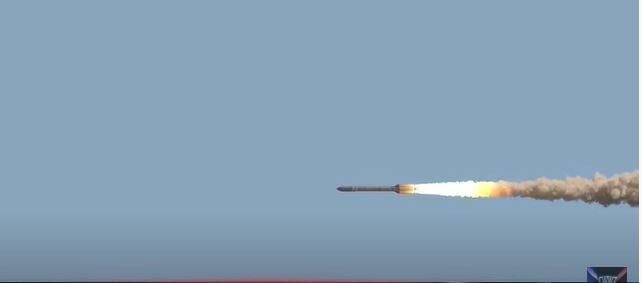
According to a new arms-control report made publicly available by the State Department, China might be secretly conducting nuclear tests but with very low explosive power despite China's affirmation about their adherence to an international accord banning all nuclear tests.
Despite no proof of evidence that China is violating its promise to uphold the agreement, the report cites an array of activities, raising concerns from other countries that the sleeping giant might not be upholding the nuclear weapons testing ban.
The possible containment of explosions occurred at China's Lop Nur test site, where extensive excavations at the site are present and a high tempo of activity from its special chambers.
Unites States suspicion continues as an interruption on data transmissions from monitoring stations that are designed to detect seismic tremors and radioactive emissions in China's territory remains in the past years.
An unclassified rundown of an annual review of international compliance with arms-control accords includes the allegation of Trump's administration wherein the review also includes China's militarization of the South China Sea, trade disputes and its handling of the coronavirus causing the worldwide pandemic.
U.S. President Donald Trump also seeks to open nuclear-arms talks with China in the hope of negotiating a better nuclear deal covering all nuclear weapons that include also Russia.
Despite Trump's efforts, some former arms-control officials shared that the administration showed more concern in scoring points against China rather than resolving potential disputes through diplomacy.
No comment from Chinese Embassy
National Security Council official on arms control during the Clinton administration, Steven Andreasen emphasized that if the United States has concerns that nuclear yield producing testing has been done by China, a discussion concerning Beijing should be done in order to build confidence that such tests are not happening.
China's Embassy in Washington, however, refused to respond. The agreement on Comprehensive Nuclear Test Ban Treaty which was concluded in 1996 is the core of the dispute, wherein it allows a range of activities to assure the safety and reliability of nuclear weapons, and inclusion of experiments involving fissile material, as long as they don't produce a nuclear-explosive yield.
Legally not in force bacause it lacks enough nations to ratify it, but China and the United States stated that they are abiding by its terms as they both signed on the agreement however neither has ratified the treaty.
The U.S. suspicions in the past years were substance by the interruption in the flow of data from the monitoring stations in China where it can suppose to measure radioactive particles and seismic tremors.
Part of an international network of hundred sites set up to verify compliance with the test-ban treaty, the station in China should be voluntarily transmitting data to the station based in Vienna that checks if the participating nations abide by the agreement.
Comprehensive Nuclear Test Ban Treaty Organization spokeswoman stated that there has been virtually no interruption in China's data transmission since September of 2019 but the previous data interruption was the result of the negotiations between the Chinese government and the CTBT organization on the arrangement for putting the stations in operation.
Data transmissions were interrupted previously, she said, but that was the result of the negotiating process between the CTBT organization and the Chinese government on arrangements for putting the stations in operation and it is not only the station in China as she emphasized that data transmission from all certified stations was interrupted in 2018 after the testing and evaluation and certification process was completed.








